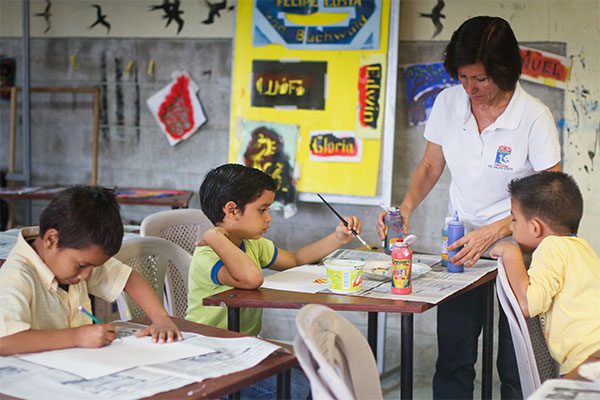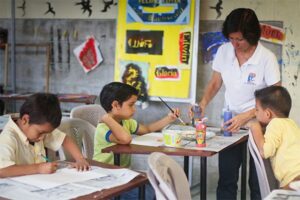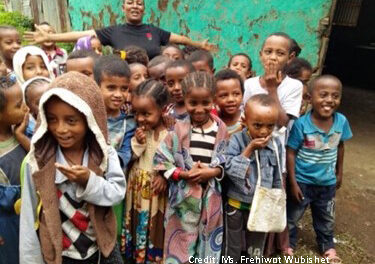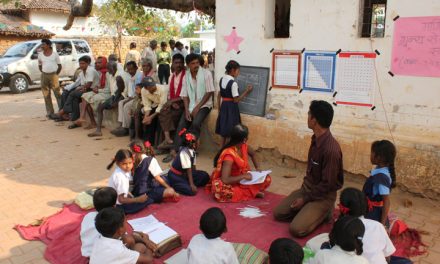Interview with Sharon Tao, co-convenor for sub-theme on Enabling Teachers
What excites you about this theme?
There are many interesting topics and areas to explore regarding sustainable development and teachers, however I am particularly looking forward to stimulating reflection and action regarding the sustainability of professional development programmes for teachers. In my research and work, I have been conscious, critical and uncomfortable with the lack of meaningful sustainability and scalability of teacher development programmes, as well as other education and international development projects, more broadly.
There is usually a significant emphasis/pressure to see short-term results within a project cycle – and these results are impressive due to large amounts of human and material resource. However, I am concerned that these results are relatively short-lived because planning for sustainability and scalability beyond the life of a project (and project funding) is not often done beyond the assumption that ‘the teachers or the government will take it over’. That said, there are examples of programmes and research that understand the complex issues, challenges and ways forward for sustainable professional development for teachers, and I look forward to seeing these presentations and being part of these discussions.
What does the literature say?
There is a rich literature on teacher professional development that demonstrates how policy environments, school conditions, teachers’ beliefs/values and programme content/delivery interact in complex ways, and ‘research and development have taken cognisance of these factors and provided food for optimism about their effects, although not yet about their sustainability in time’ (Avalos, 2011: 10). Beatrice Avalos’ article, ‘Teacher Professional Development in Teaching and Teacher Education over Ten Years’, frames some of the complex issues and challenges that affect the fidelity and sustainability of teachers’ implementation of learning; and demonstrates how there is a dearth of literature on these issues within low-income countries (with the exception of important work by O’Sullivan (2002) about the Namibian context). Such contexts entail additional tensions regarding international development power dynamics, funding flows and differing educational beliefs, values and contexts, which should be further interrogated, particularly regarding how they affect the sustainability of teacher professional development programmes.
How does this link to the overall 2017 conference theme?
The education SDG places an emphasis on equity, quality and lifelong learning, and this year’s UKFIET conference will stimulate valuable debate on how these topics relate to what should be learned and taught, and how. Teachers play a central role in delivering any vision of an equitable and quality education; and if we want to ensure that this type of education is sustainable, then support to teachers must also be sustainable.
What kinds of papers would you like to see submitted for this theme?
As I’ve mentioned, there is only a small body of research that looks at issues of teacher development sustainability in low-income countries, particularly regarding sustainable policy/programme design, and sustainable teacher implementation/application. I would like to see empirical and theoretical contributions from researchers and practitioners about lessons learned and concrete ways forward that facilitate meaningful sustainability and scalability of teacher development programmes.
What do we still need to understand more about to make progress in the area of sustainable teacher professional development?
There needs to be greater understanding of the challenges and difficulties of designing and implementing scalable and sustainable teacher professional development programmes in low-income countries; as well as a greater insight into the nuance and complexity of potentially changing teacher practice/behaviour through professional development. If both of these strands could feed into and influence each other, great strides could be made towards supporting teachers to sustainably deliver an equitable and quality education for all.
Sharon is co-convening this session with Nalini Boodhoo who has also given an interview on Enabling Teachers







This is an extremely important issue. Appropriating training loss within few months of training makes it difficult to justify investments in professional development of teachers. The impact of training is least discernible in school and classroom practices. This absence of impact of training is due to a variety of factors, and not just quality of training. In developing countries like India, there is a disconnect among funding agencies (government), training agencies (usually universities and private enterprises) and schools. Where the training agencies finish with good or not so good training, thread is not picked up by the school – the place to implement learning from training. Schools and their super-ordinate structures are yet to formulate a vision of teacher professional development for change and quality management. Teacher professional development continues to be a ritual – training for training’s sake.
As an author and researcher in Total Quality Management in education, I worked with 125 teachers serving in 40 government rural primary schools for several years. I used inspirational model for teacher development. They achieved Zero Dropout, total enrolment and higher level of learning outcome of students. The results have been sustained much after my research was over. Teachers, voluntarily, continue some of the innovative methods and practices collectively on their own. On the basis of my research and work with teachers, I conclude that sustainable professional development is possible only when there is a deep engagement between mentors and teachers, backed by the funding agencies, allowing the teachers to unveil and optimize their talents and choices.
I tried to reply to this earlier today, but I think that it got lost during a power failure. So will try again.
I read with great interest Sharon’s comments about sustainability of project outcomes. I have almost completed two years in the field of an Asian Country undertaking teacher training and capacity development within the TVET sector. What is of particular concern to me is that on completion of this current TA there is no likely hood of sustainable development into the future, despite there being an expectation that outcomes will be replicated in other centres. The terms of reference made no provision for a counter part for the Consultant to work with and who ultimately would have a working knowledge of what was developed and what was achieved. On my departure, there is no one to continue implementation and I fear that there will be limited success to follow and it fills me with great sadness.